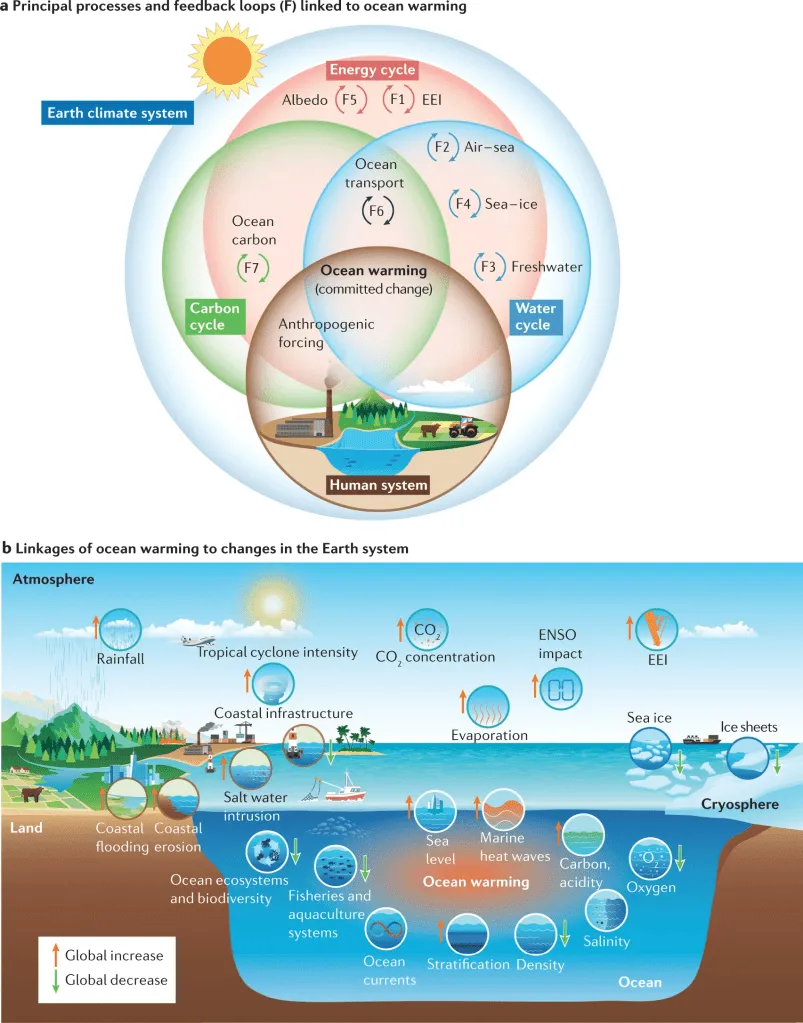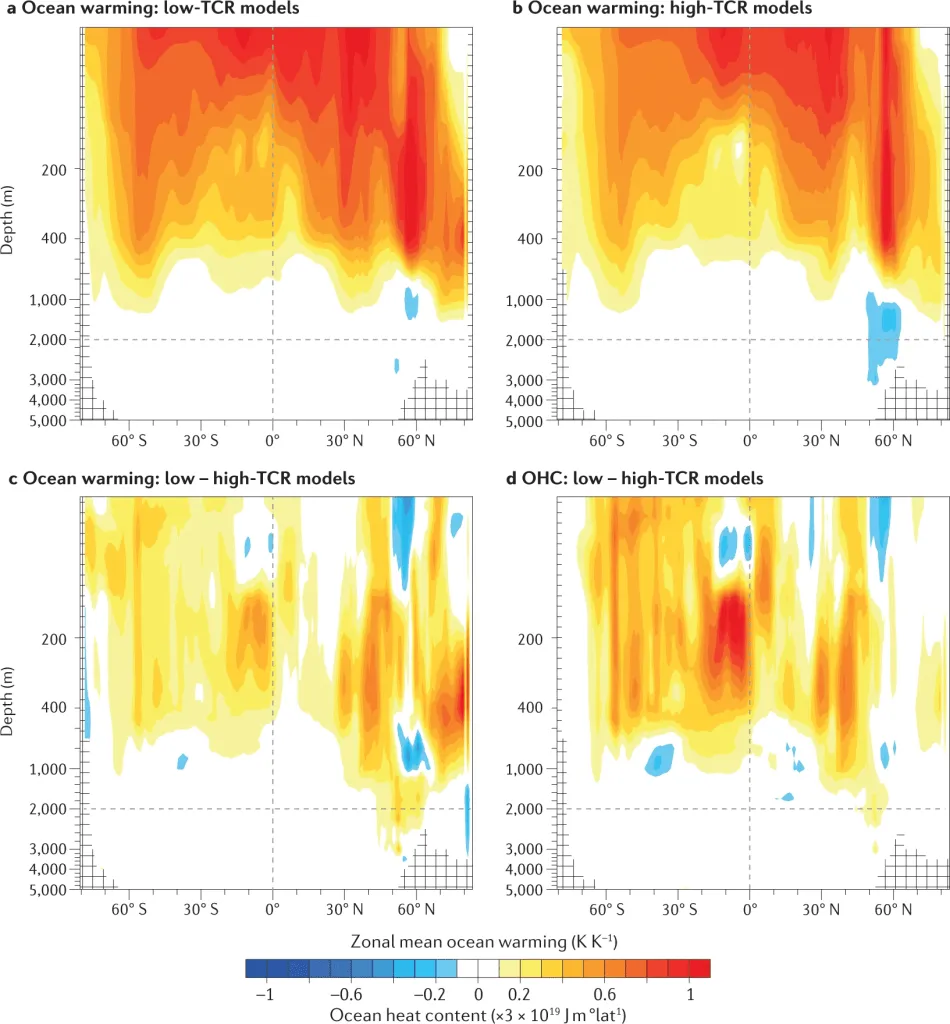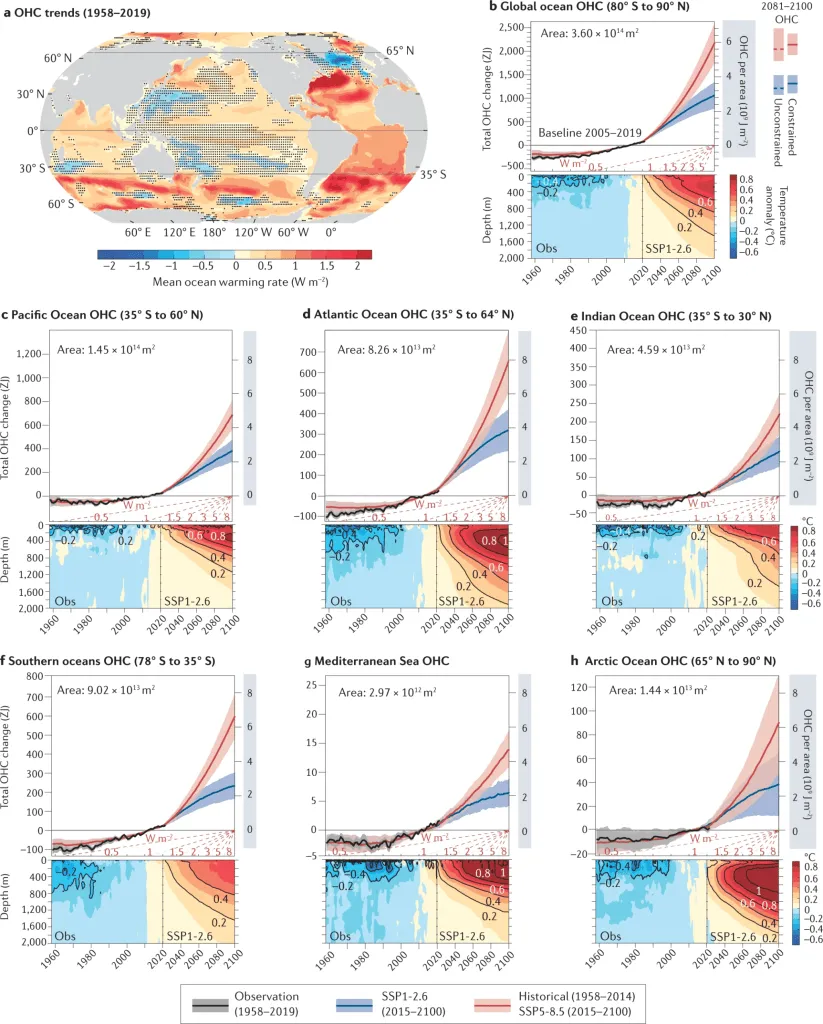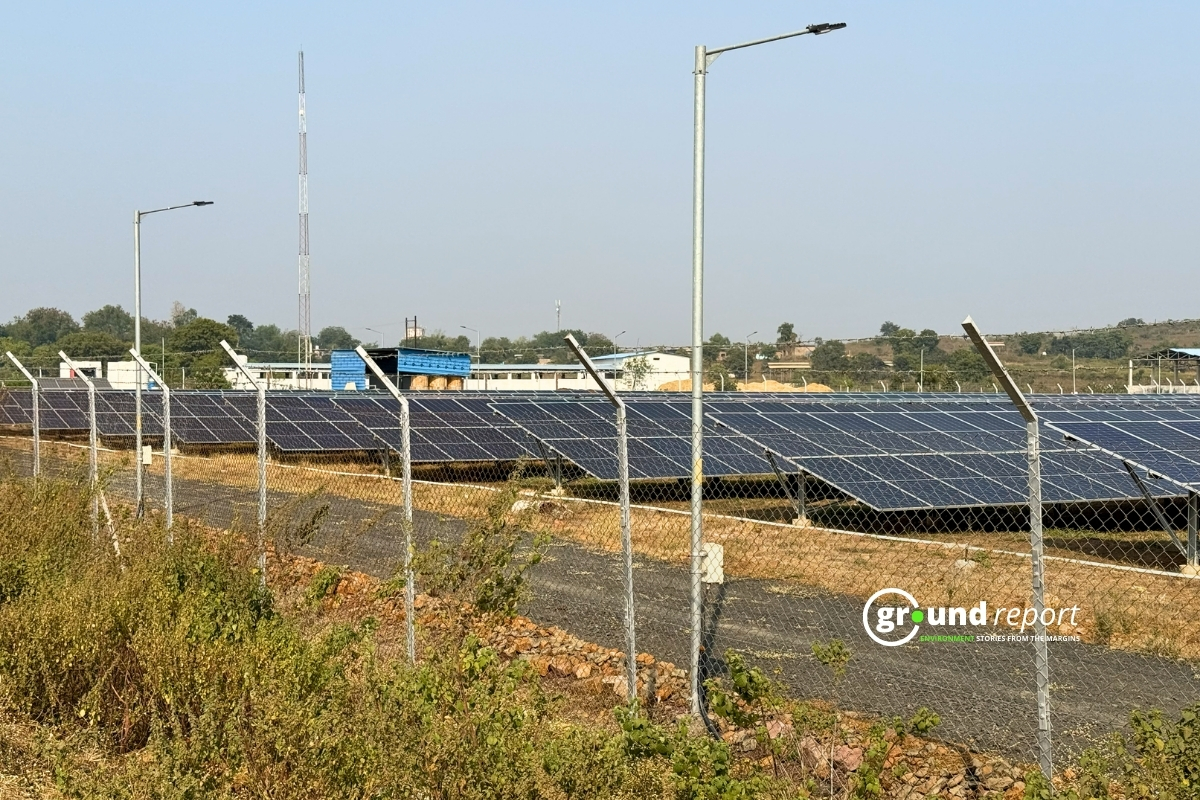A recent study was commissioned to make a comprehensive assessment of global warming and how it could influence the oceans. According to the research, published in Nature Reviews: Earth and Environment, as people emit greenhouse gases into the atmosphere, the Earth warms, and much of that heat (about 90%) ends up being absorbed by the oceans.
According to the new report, this historic warming of all the seas on our planet is one of the most serious impacts of climate change and began to skyrocket in the middle of the last century.
With these measurements, the community has produced many data sets to monitor ocean warming. The authors performed a comprehensive assessment of the validity of each data set based on progress in the field over the past few years, and were then able to calculate how fast the ocean has warmed.
According to a recent study, more than 90% of the heat generated by the emission of greenhouse gases into the atmosphere, through the burning of fossil fuels, is absorbed by the ocean.
The rate at which the oceans are warming globally has doubled from the 1960s to the 2010s, according to a new study. The top 2000 meters of the global ocean have gained 351 A ZJ during 1958-2019. For context, a A ZJ is 10 to the power of 21 or 1,000,000,000,000,000,000,000 joules.

Macro investigation
The research, in which 15 scientists from New Zealand, China, the United Kingdom, France and the United States participated, determined that the amount of heat that is absorbed by the ocean is allowing it to accelerate and fuel extreme weather events.
“The devastating floods in eastern Australia were likely made worse by warming oceans. The risks would continue to increase as the ocean absorbs more heat.
To reach this conclusion, the researchers collected information on the temperature of the world’s oceans using a variety of temperature sensors. With the data collected, they pieced together a clear picture of the change in global ocean heat content since the 1950s.

With these measurements, the community has produced many data sets to monitor ocean warming. Now, ocean warming is accelerating at a rate that has more than doubled from the 1960s to the 2010s.
And this is dangerous for us because the increased heat of the sea waters is already causing more intense hurricanes and more intense rains in the coastal areas, the Spanish Levante.
Serious impacts
Furthermore, this increased heat is leading to a higher rate of melting at the poles and Greenland and a “relentless” rise in sea level.
The good news from this new scientific report is that if deep reductions in greenhouse gas emissions are made, this acceleration of ocean warming will stop around 2030.
However, if the international community does not take action, as it has done so far, the predictions are quite dire: by the 2090s, “the rate of warming of the oceans is projected to be four times greater than the current level.”

Another finding of this report is that although ocean warming is projected to continue in all basins, some ocean regions are warming faster than others. For example, the Atlantic Ocean and the southern oceans are warming much faster than the Pacific Ocean and the Indian Ocean.
They found that the rate of warming in the upper 2 kilometres has doubled since the levels of the 1960s. In addition, they determined that additional heat that has been generated is accelerating sea level rise, intensifying extreme rainfall events. For example, by melting ice or causing more intense marine heat waves.
According to the researchers, with this increase in the temperature of the oceans, both the marine habitats and the life of these species are being threatened. “Which means that the oceans will increasingly have less capacity to remove carbon from the atmosphere,” the study said.
The researchers modelled a scenario in which greenhouse gas emissions are reduced and determined that even if this goal is achieved, ocean warming will at least double from current levels by the end of the century.
Support us to keep independent environmental journalism alive in India.
Keep Reading
Part 1: Cloudburst in Ganderbal’s Padabal village & unfulfilled promises
India braces for intense 2024 monsoon amid recent deadly weather trends
Follow Ground Report on X, Instagram and Facebook for environmental and underreported stories from the margins. Give us feedback on our email id greport2018@gmail.com.
Don’t forget to Subscribe to our weekly newsletter, Join our community on WhatsApp, and Follow our YouTube Channel for video stories.









